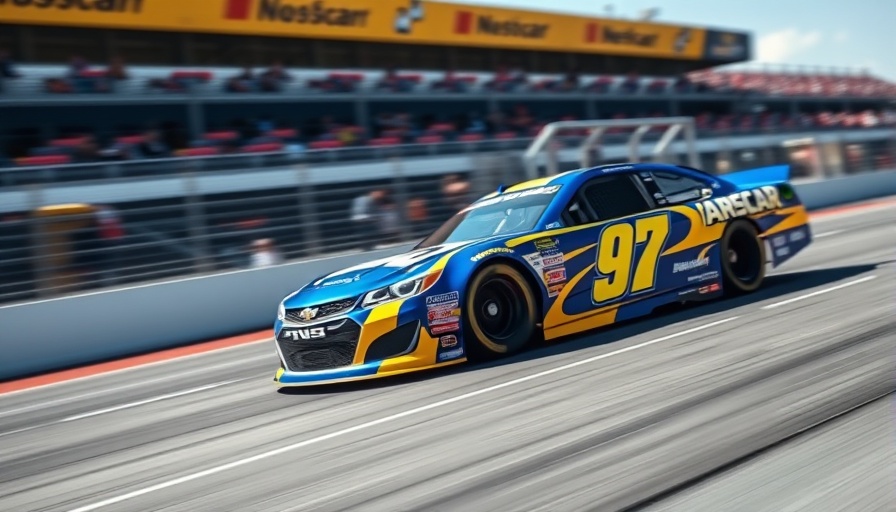
The Importance of Precision in NASCAR
In NASCAR, every second matters and precision during pit stops can make or break a race. This week, Rick Ware Racing faced severe penalties after a loose wheel incident involving driver Cody Ware. An 'oh-no' moment unfolded at Sonoma Raceway, as the right-rear wheel of Ware's No. 51 Ford came off during the race. Luckily, Ware managed to control the car, but not without consequences. The NASCAR sanctioning body has issued suspensions to two crew members—rear tire changer Marquill Osborne and jackman De'Quan Hampton—for two upcoming races: Dover and Indianapolis.
From Drama to Dismissal: The Impact of Crew Decisions
The loosening of a wheel isn't just a difficult situation for the driver; it's a serious infraction against team protocols. After experiencing a harrowing crash the week prior, where his car collided with a wall at 90mph, Ware was eager for a smoother race. Instead, the road to recovery took a different turn with this latest mishap. The reality is that NASCAR is not lenient when it comes to safety; the decision to penalize crew members reinforces the accountability that teams must maintain. Incidents like these underscore the need for teams to double down on their labor, ensuring equipment is secured properly.
Statistics Behind the Pit Performance
Pit crew performance statistics suggest that the efficiency and effectiveness of pit stops can heavily affect the outcome of races. According to NASCAR statistics, teams that maintain a consistent pit stop average tend to perform better in overall standings. With the recent penalty, Rick Ware Racing will miss key points that could have bolstered their standing in the season. The crew's role in these statistics cannot be overstated—their work directly influences the momentum of the car on the track.
Lessons Learned: Implications for the Future
This suspension serves as a reminder for all NASCAR teams about the importance of professionalism and diligence. In light of the recent episodes, teams must prioritize training and rehearsals; after all, when it comes to NASCAR, there’s no room for error. Many teams are already working on refreshing their protocols to avoid similar issues.
Comparing NASCAR’s Rules with Other Sports
The strict penalties in NASCAR pinpoint a broader mindset prevalent in sports culture. Just like officials in basketball or football, NASCAR officials wield considerable authority over the course of a race. The consistency in officiating ensures a level playing field where players or teams cannot exploit loopholes. Teams in other sports, whether in hockey's disciplinary actions or football's turnover points, can learn a lot from NASCAR's dedication to rules enforcement. The penalties serve not just as punishment but as a valuable teaching moment, caustically emphasizing that nothing—absolutely nothing—comes before safety.
Your Takeaway: The Significance of Commitment
For fans and those engaged in the racing community, the recent incident at Sonoma isn't just about loose wheels; it's about commitment and accountability at every level of the sport. Whether you’re a spectator, hobbyist, or participant, being proactive and prepared is essential. The lessons from Cody Ware’s ordeal should resonate within each enthusiast, reinforcing the critical nature of teamwork and vigilance in NASCAR. Together, they build a culture that not only strives for success but does so with safety at its core.
Cody Ware’s journey continues in NASCAR, but what will he take from these latest challenges? Could greater emphasis on crew training lead to fewer mishaps? As a fan, you can stay up to date on safety regulations in this thrilling sport. Make sure to catch the next racing weekend and see how Rick Ware Racing bounces back!
 Add Row
Add Row  Add
Add 




Write A Comment